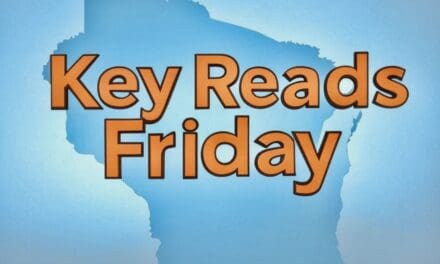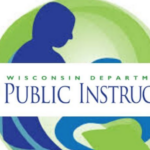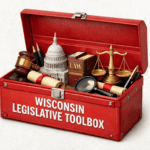Today’s Key Reads update is full of news regarding stories we’ve been following for quite some time.
Let’s get right to them.
Many Wisconsin’s prisons are crowded, old, and have staffing issues. It’s a dangerous and brewing scandal that the Evers administration has yet to resolve, even as Corrections staff are arrested for inmate deaths. The problems with Evers’ Department of Corrections also extend to the state’s facilities for youth offenders.
Analysis of Lincoln Hills youth battery cases filed in 2024 | WSAW
Since January there have been at least 14 incidents at Lincoln Hills/Copper Lake Schools where a teen assaulted either another youth or a staff member. It is part of the Lincoln County district attorney’s filings so far this year.
…For the full case file in 2024 so far (including the incidents from 2023 and 2022), 10 incidents included youth assaults on other youth; 47 were youth-on-staff assaults (some cases involved both youth and employee assaults). For the same window of time, 20 teens were accused of battery. Half of those teens were involved in one incident, a quarter were involved in two assaults, and another quarter had more than three assault incidents charged. Two teens, both from CLS, had double-digit incident counts; one was all while she was 17-years-old, the other was across three years of age, 12 to 14-years-old.
…Previous court-ordered monitor reports state that when youth have more structured time and programming, as well as positive interaction from staff, incidents reduce. Based on the criminal complaints reviewed, nearly all of the incidents seemed to happen during youth free time, though sometimes staff were interacting, like playing cards, with youth.The monitor is an individual assigned by the judge in the federal court case involving the facility (which the Wisconsin Department of Corrections lost) to regularly check in on the facility to hold it accountable to the judge’s orders. Those orders include eliminating the use of pepper spray against youth, reducing the use of solitary confinement for punishment, and reducing the use of restraints on youth.
Legislative Council Study Committees are composed of legislators and members of the private sector. During even numbered years they conduct research and hearings and develop legislation that is often introduced when the next legislature convenes the following year. One such panel is loaded with heavy hitting civic leaders and may help chart the future course for the beleaguered UW System.
After DEI feud, panel will scrutinize University of Wisconsin’s future | The Cap Times
The legislative study committee includes lawmakers, business leaders and professors among its 18 members, who will contemplate a range of issues facing public higher education in Wisconsin. Those topics are expected to vary from state funding levels to declining enrollment to the possibility of separating UW-Madison from the rest of the UW system.
…”I hope people just don’t write it off as an exercise in political gamesmanship. I don’t think it is. I think it’s a sincere effort — deepen the discussion, hopefully arrive at some ideas,” said Atwell, founding CEO of Nicolet National Bank in Green Bay.
Atwell resigned from the Board of Regents in June. He initially said he would stay past his term, at least for one more board meeting, until his replacement was named. In his new role, Atwell said he will focus on themes that he pushed for as a regent.
…Wisconsin is annually graduating thousands fewer high schoolers than two or three decades ago, giving universities a smaller pool of in-state students for recruitment.
…Nearly half of the UW system’s 13 universities are projected to have structural deficits in 2024-25. Some universities closed two-year branch campuses in recent years amid plummeting enrollment and budget challenges.
…One idea expected to gain renewed attention from the legislative study committee is spinning off UW-Madison from the rest of the UW system.
…UW-Madison has long argued for more decision-making powers as one of the few flagship universities in the country lacking freedom on construction projects, among other things. In a recent research paper, a group of UW-Madison economists suggest there is some merit to giving UW-Madison more freedom, noting the university is relatively unique among flagship universities nationally in being tied to 12 other universities.
The federal program formally known as Food Stamps expanded tremendously during the economic shutdown mandated by government in response to the COVID-19 pandemic. While the size of the program is smaller than the spike initiated four years ago, the cost of the program continues to spiral up.
More people are enrolled in FoodShare in Wisconsin than before the COVID-19 era began in 2020.| The Center Square
The findings, released June 28, are in a report from research by the Wisconsin Policy Forum.
“Though the COVID-19 crisis has faded and Wisconsin’s unemployment rate has fallen to prepandemic levels, the number of people receiving the benefits formerly known as food stamps remains elevated and currently shows little sign of dropping back to its prepandemic count,” the report states. “As of March 2024, data from the state Department of Health Services show Wisconsin’s FoodShare program totaled 702,700 recipients. That was well below the most recent peak of 793,300 participants in May 2021 but still 99,000 (16%) more than in March 2020, which was the last month with recipient levels not impacted by the pandemic.”
Most of America, and with it the world, came to a halt on or about Thursday and Friday, March 12-13, 2020. A message of “two weeks to slow the curve” grew into multiple years, with setbacks to the economy and education criticized as much as any.
Wisconsin’s 6 million population has 11% – 702,700 – enrolled in FoodShare. The majority is in the biggest city and poorest communities.
“In March 2024, FoodShare enrollment remained at least 20% higher in 43 of the state’s 72 counties compared to March 2020,” the report says. “Twenty-three additional counties saw increases of at least 10%. Three of the eleven federally recognized tribes located in Wisconsin also experienced program participation increases of at least 20% over that same time frame. As of March 2024, Sheboygan (30%), Milwaukee (26%) and Shawano (26%) counties had the highest FoodShare participation rates in Wisconsin.”
The report adds that four of Wisconsin’s tribes had participation rates of at least 25%, and one over 50%.
The report says the continued dependence on FoodShare may be caused by inflation and high food prices, but is mostly caused by pandemic-era eligibility expansions.
The report says, “Significant changes included exemptions to the FoodShare requirement that nondisabled adults ages 18 to 49 without dependents , take part in a work program, volunteer, or provide community service for at least 80 hours a month to qualify. Other changes included more streamlined application and renewal processes; student eligibility exemptions; and suspension of the drug testing requirement for certain persons convicted of a drug felony in the past five years.”
Some of those changes have been rolled back, but there remains a work requirement exemption for Milwaukee, Racine, and other high FoodShare-enrollee communities.
Wisconsin is spending nearly twice what it spent on FoodShare in 2020.
“Total FoodShare benefit payments in Wisconsin have fallen since their $193.8 million peak in December 2022, yet they remain higher than prepandemic levels,” the authors noted. “The $113.1 million in benefit payments in March 2024 exceeded the March 2020 total by $47.8 million.”
The report doesn’t offer any conclusions or suggestions as to what policymakers can do to change the trend.
“For now at least, greater reliance on FoodShare for many Wisconsin residents appears to be the new normal,” the report said.
The Circus World Museum is in Baraboo. But the long-running political circus in Racine has moved into a Dane County Court. Even though it would at best keep Speaker Vos out of a job for a few months, while costing local taxpayers hundreds of thousands of dollars, the self-proclaimed good government crusaders want to ‘send a message.’
Organizers of recall targeting a top Wisconsin Republican appeal to court | The Associated Press
Recall organizers filed their appeal in Dane County Circuit Court on Friday, a week after their effort to recall Assembly Speaker Robin Vos effort failed due to officials determining that not enough valid signatures were collected.
…The elections commission determined that signatures collected beyond the 60-day circulation window should not count. The filing deadline was extended by two days due to the Memorial Day holiday, but the commission said that deadline for collecting signatures was not also extended.
…If the court agrees that there should be a recall election, a candidate would have to come forward to challenge Vos. The election would then decide whether Vos would remain for the rest of the year or be replaced.
Recall organizer Matthew Snorek has defended moving ahead with the recall, despite Vos being near the end of his term, saying it will send a message.
Vos once called the recallers, many of whom are from out of state, “whack jobs and morons.”
We will be back again tomorrow, with more Key Reads.


















